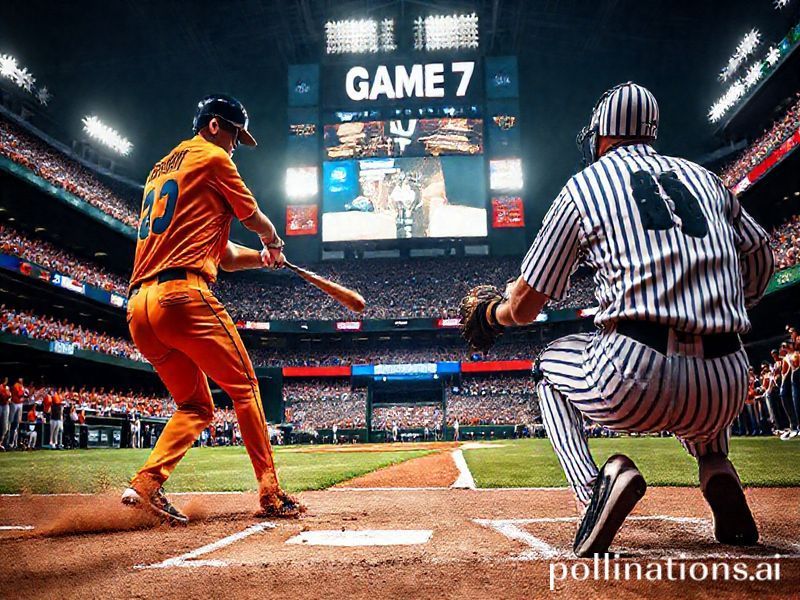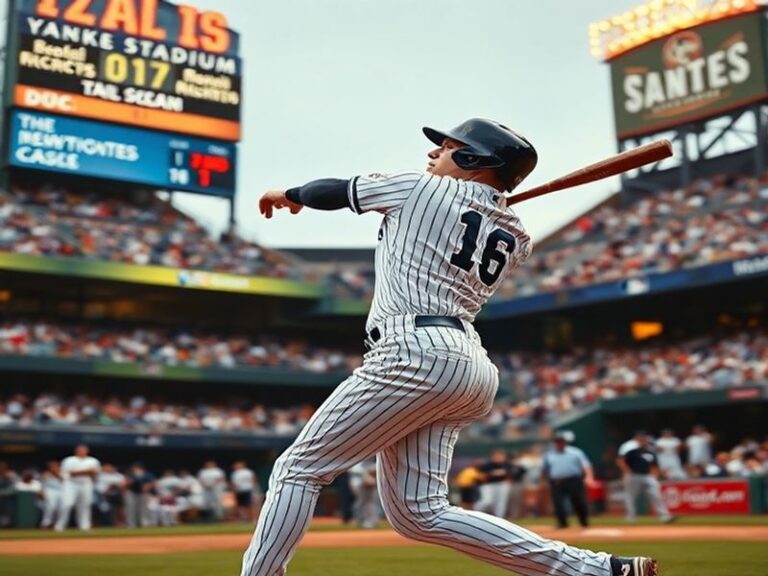astros vs yankees
Houston, We Have a Brand Problem: Astros vs Yankees as Global Morality Play
by Dave’s Locker Foreign Correspondent (still jet-lagged from a nonstop via Reykjavik)
When the Houston Astros and New York Yankees renew their blood feud this week, most of the planet will be busy keeping the lights on, the bombs off, or the local junta mildly amused. Yet for those of us paid to find cosmic meaning in grown men spitting sunflower seeds, this American pastime is less baseball than geopolitical allegory—complete with sanctioned cheating, weaponized nostalgia, and enough money sloshing around to make a Swiss banker blush.
Let’s start with the obvious: the Astros are the poster children for reputational laundering. After being caught stealing signs with the subtlety of a teenager clearing browser history, they doubled down on winning, hired a few crisis-PR firms, and—voilà—are once again embraced by a society that forgives anything if you hit .330 in October. It’s the same arc we see from kleptocrats who buy English football clubs, slap a “community outreach” label on the stadium, and suddenly no one asks how the offshore account got so fat.
Across the diamond, the Yankees remain the sporting equivalent of a nuclear aircraft carrier: ludicrously expensive, perennially menacing, and impossible to ignore no matter how far you live from the Bronx. Their pinstripes are less uniform than trademark, instantly legible from Lagos to Lahore as shorthand for empire. When a kid in Jakarta rocks a knock-off Yankees cap, he’s not signaling love for Aaron Judge; he’s auditioning for modernity, American-style—equal parts aspiration and cultural hegemony with a side of polyester.
Now zoom out. The series is broadcast to 189 countries via a constellation of satellites originally launched to guide ICBMs but now repurposed for live-streaming curveballs. Every pitch is dissected on Twitter by armchair physicists from Berlin to Bangalore, while crypto-bros in Singapore hedge their emotional investment with NFTs of José Altuve’s batting gloves. One half expects the International Space Station to pipe in the play-by-play, if only to remind astronauts what they’re missing: gravity, existential dread, and $12 stadium beer.
The global supply chain makes its cameo too. Those iconic Louisville Sluggers? Timber sourced from Pennsylvania, milled in China, lacquered in Mexico, and flown back on cargo jets that belch more carbon than a small Balkan nation. It’s a logistical ballet choreographed by the same spreadsheet wizards who ensure your iPhone arrives before the laborers’ passports are returned. In this light, a broken bat isn’t an athletic footnote; it’s a multilateral trade agreement snapping in two.
Meanwhile, sportsbooks from Malta to Manila are posting odds so granular you can bet on the over/under of Gerrit Cole’s facial expressions. Regulation is, shall we say, uneven. In London, the UK Gambling Commission insists on “responsible play” pop-ups; in less scrupulous jurisdictions, your data is harvested faster than you can say “algorithmic addiction.” Either way, the house always wins—just ask any Venezuelan shortstop sending remittances home via Western Union between innings.
And then there’s the geopolitical subplot. MLB recently signed a development deal with Saudi Arabia, because nothing says “grassroots baseball” like a desert kingdom where the average July temperature could melt aluminum. The press release promised “youth outreach” and “sportswashing—er, cultural exchange,” neatly illustrating the universal truth: if you hit a ball far enough, it lands in someone else’s propaganda brochure.
By the ninth inning—assuming we haven’t all been distracted by a celebrity cryptocurrency bankruptcy—the Astros will either be redeemed or reviled, the Yankees will be richer or merely rich, and the rest of us will log off to resume more pressing concerns: war, recession, or tonight’s dinner. Yet for three hours, the world shrinks to 60 feet, 6 inches of manufactured drama, and that, dear reader, is the true magic: proof that humanity can still agree on something, even if it’s only the strike zone.
Conclusion: In the grand scheme, Astros vs Yankees is less about baseball than about the stories we tell ourselves to keep the chaos at bay. Whether you see it as a redemption arc, a capitalist ritual, or just a very loud commercial, the game reminds us that international relations now include curveballs. And as always, the only thing more reliable than the Yankees’ budget is the global appetite for distraction. Play ball—or don’t. The satellites will be watching either way.







